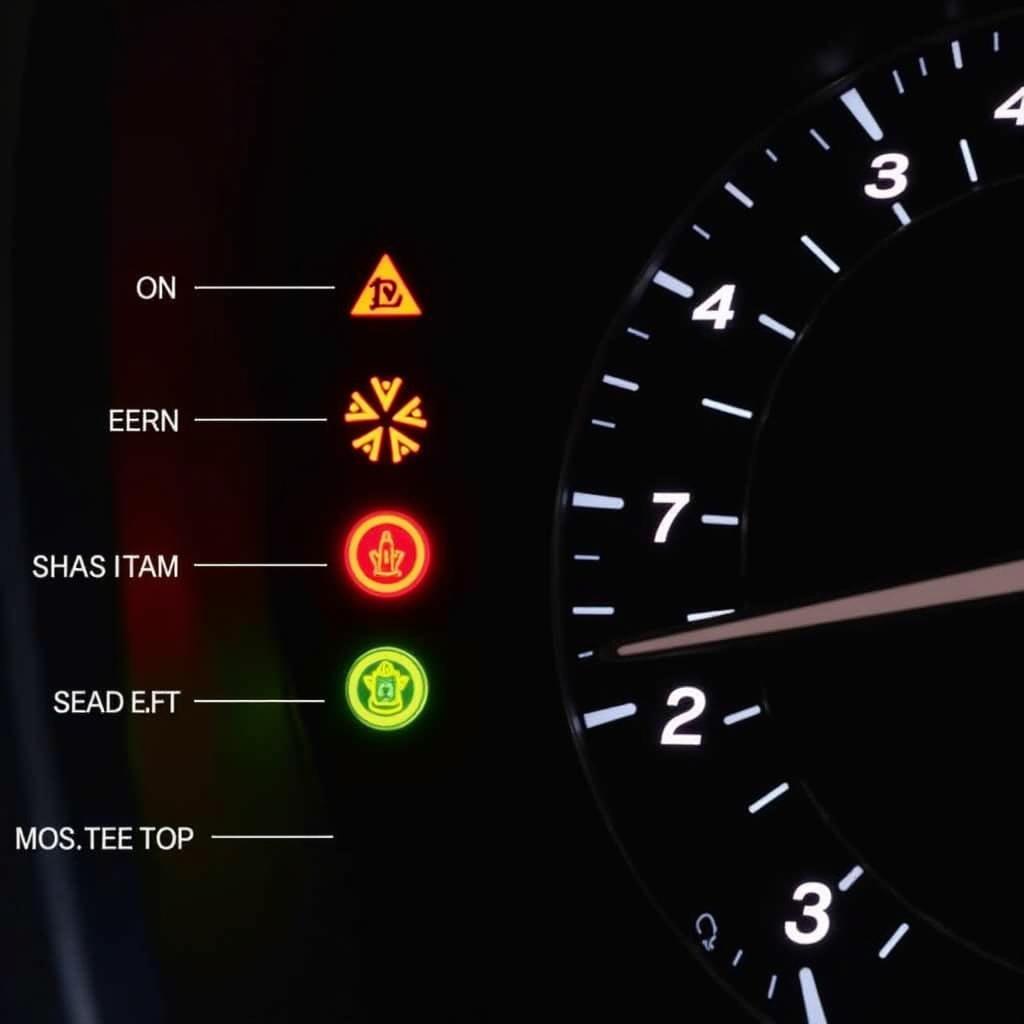Basic car maintenance encompasses the regular checks and procedures necessary to keep your vehicle running smoothly, safely, and efficiently. Ignoring these essential tasks can lead to costly repairs down the line, decreased fuel efficiency, and even dangerous driving conditions. Understanding what constitutes basic car maintenance empowers you to take proactive steps in preserving your vehicle’s health and extending its lifespan.
After this opening paragraph, we will delve into the specifics of basic car maintenance, exploring essential tasks like checking fluids, inspecting tires, and understanding the importance of regular maintenance schedules. Just like checklist for basic car maintenance, we’ll cover a comprehensive range of tasks to keep your car in tip-top shape.
Why is Basic Car Maintenance So Important?
Regular car maintenance is crucial for a variety of reasons. Firstly, it ensures your safety on the road. Well-maintained brakes, tires, and lights significantly reduce the risk of accidents. Secondly, it can save you money in the long run. Addressing minor issues early prevents them from escalating into major, expensive repairs. Finally, consistent maintenance improves fuel efficiency, saving you money at the pump and reducing your environmental impact.
What are the Essential Basic Car Maintenance Tasks?
Several key tasks fall under the umbrella of basic car maintenance. These include regularly checking and changing your oil, inspecting and rotating your tires, checking and topping off fluids like coolant and brake fluid, replacing air filters, and inspecting your lights and wipers. Each of these tasks plays a vital role in your vehicle’s overall health and performance. Many of these essential tasks are covered in detail in basic car maintenance courses, which provide a structured approach to learning car care.
How Often Should I Perform Basic Car Maintenance?
The frequency of basic car maintenance depends on several factors, including your vehicle’s make and model, your driving habits, and the climate you live in. Refer to your owner’s manual for specific recommendations. However, a general rule of thumb is to check your fluids and tire pressure monthly, change your oil every 3,000-5,000 miles, and rotate your tires every 5,000-7,500 miles. Learning car maintenance basicss can provide a good foundation for understanding these schedules.
What About My Car Warranty?
Many new cars come with a warranty that covers certain maintenance tasks for a specific period. However, it’s essential to understand what your warranty covers and what it doesn’t. Some warranties only cover specific parts or services, while others may have mileage limitations. Familiarize yourself with the details of your warranty to avoid unexpected expenses. Find out more about what car warranty covers basic maintenance.
 Carefully Reading the Car Owner’s Manual
Carefully Reading the Car Owner’s Manual
What Tools Do I Need for Basic Car Maintenance?
For basic car maintenance, you’ll need a few essential tools, including a wrench set, screwdrivers, pliers, a jack, and a tire pressure gauge. Investing in a good quality tool kit can save you money and hassle in the long run. A comprehensive overview of the basic car maintenance tasks usually includes a list of recommended tools.
What if I Don’t Feel Comfortable Performing Basic Car Maintenance Myself?
If you’re not comfortable performing basic car maintenance yourself, that’s perfectly okay. Many reputable mechanics and service centers offer affordable maintenance packages. Finding a trustworthy mechanic is crucial for ensuring your car receives proper care.
How Can I Tell if Something’s Wrong With My Car?
Paying attention to your car’s behavior is crucial for identifying potential problems early on. Unusual noises, vibrations, warning lights, or changes in performance can all indicate that something needs attention. Don’t ignore these signs; addressing them promptly can prevent minor issues from becoming major headaches.
 Car Dashboard Warning Lights Explained
Car Dashboard Warning Lights Explained
Conclusion
Basic car maintenance is essential for the safety, longevity, and efficiency of your vehicle. By understanding and performing these simple tasks, you can save money, avoid costly repairs, and enjoy peace of mind on the road. Remember, regular maintenance is an investment in your vehicle’s future. For any further assistance or inquiries, feel free to contact AutoTipPro at +1 (641) 206-8880 or visit our office at 500 N St Mary’s St, San Antonio, TX 78205, United States. We’re here to help keep your car in top condition!
FAQ
- What is the most important basic car maintenance task? Regularly checking and changing your oil is arguably the most crucial basic car maintenance task.
- How can I save money on basic car maintenance? Learning to perform some tasks yourself, like checking fluids and tire pressure, can save you money.
- What should I do if my check engine light comes on? Take your car to a qualified mechanic as soon as possible to diagnose the problem.
- How can I find a trustworthy mechanic? Ask for recommendations from friends, family, or online forums.
- Is it necessary to rotate my tires? Yes, tire rotation ensures even wear and tear, extending the life of your tires.
- What is the difference between synthetic and conventional oil? Synthetic oil is engineered to provide superior performance and protection compared to conventional oil.
- How often should I replace my air filter? Check your owner’s manual for specific recommendations, but generally, air filters should be replaced every 12,000-15,000 miles.






Leave a Reply